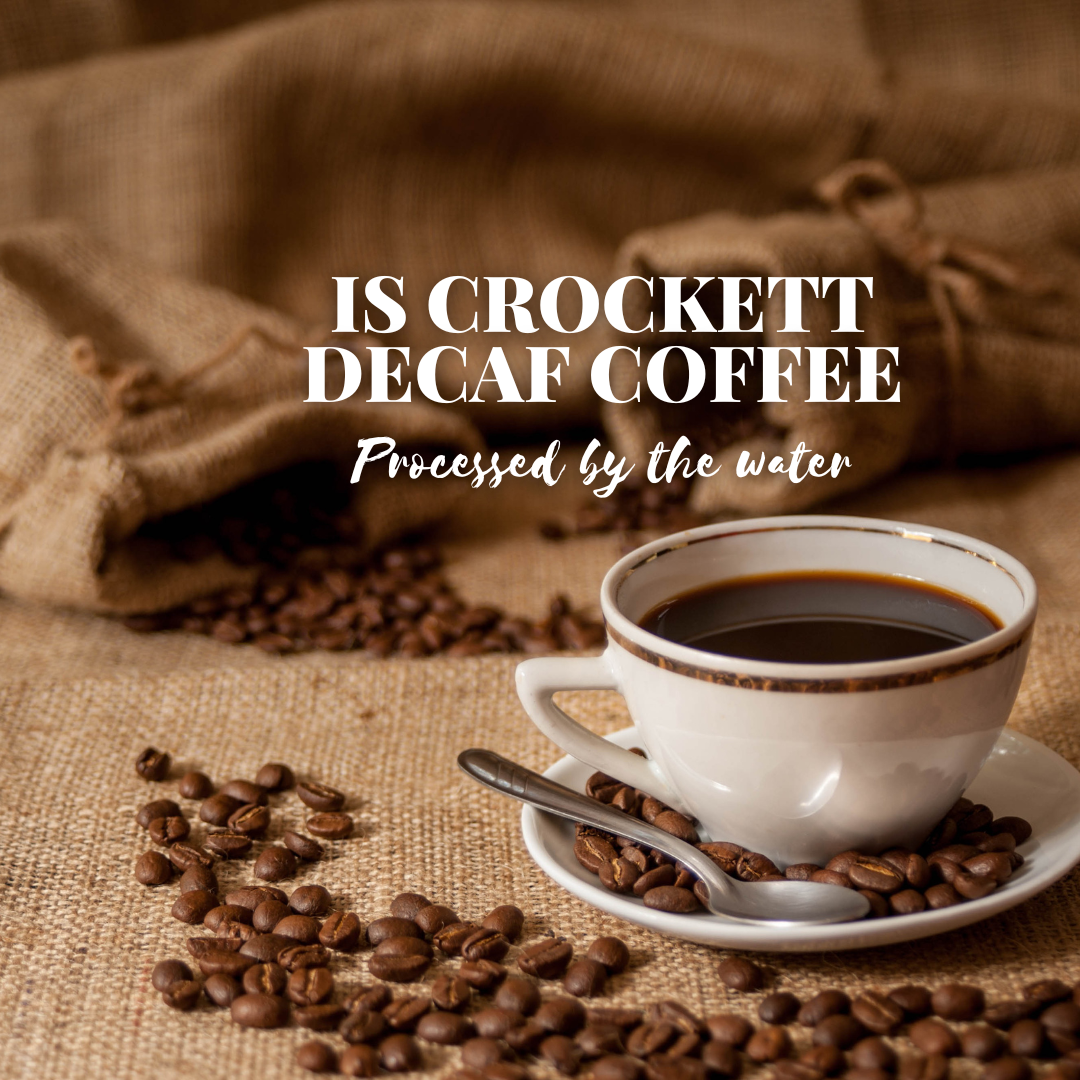Is Crockett Decaf Coffee: Processed by the Water Process?

If we talk ” Is Crockett Decaf Coffee Processed by the water process” about coffee brands in America, then Crockett coffee has its own distinct identity. With a renowned affiliation, the legendary Davy Crockett offers the best dark roast coffee grounds on the market. Which is manufactured with quality and tradition. But if you love coffee minus the caffeine, you might be surprised – Is Crockett’s decaf coffee processed by the water method? Let’s go deeper and know the process of Crockett’s de Caffeination. What makes it unique, and alternatives like the water method VS chemical processing.
What is Crockett Coffee Known For?
- Best Dark Roast Coffee Ground: Crockett Roasted Coffee is perfect for the people of America. Because every coffee lover thinks that it contains bold and powerful natural products. Which is found in natural products Crockett coffee. Naturally perfect for their morning rituals.
- Davy Crockett Coffee Mug: Crockett fans often collect mugs. They refresh old memories with them. And they also discuss the latest information among themselves.
- American-Made Quality: Crockett coffee reflects premium American-made craftsmanship with all processes conforming to local, traditional, urban standards. Trusted by coffee lovers.
The Process Behind Decaf Coffee: Water Method vs. Chemical Method
If you want to know Is Crockett decaf coffee Processed by the water process & enjoy the taste of coffee without the buzz. So it is important for you to understand how it is de-caffeinated. Crockett coffee claims, that they focus on quality decaf production in it. But it is also important, do they use swiss water method or chemical approach in it?
What is the Water Process Decaffeination Method?
Swiss water process is called water process. Green beans are added to coffee to extract caffeine without using harsh chemicals. They squeeze the caffeine out of it. Which is an organic natural process. 100% chemical-free decaf coffee of major brands in the US do their marketing using this organic method. The main section is Crockett decaf coffee processed by the water process.
How Some Brands Use Methylene Chloride for Decaffeination:
Some decaf coffee brands use a solvent-based method that includes methylene chloride. While this chemical helps to effectively remove caffeine, users are sometimes concerned about potential residue. However, the FDA has approved the safety of methylene chloride in decaffeinated coffee at a regulatory level.
Is Crockett Coffee Water Processed?
Crockett Coffee’s main goal is to provide you with high quality decaffeinated coffee. But now it is very important to confirm that there are big brands. What process do they use for filtration? Purify it with chemical process or use some other process. A brand like Frigeria that purifies it organically. For this, they use the Swiss water process.
Decaf Coffee Water Processed Brands to Explore:
If you’re looking for decaf coffee brands committed to chemical-free practices. So here are some that rely on the special Swiss water process:
- Peet’s Coffee Decaf
- Kicking Horse Coffee
- Café Virtuoso
- Frigera Coffee – A brand celebrated for maintaining the integrity of coffee through water decaffeination.
Crockett Decaf Coffee: Positive and Negative Effects on Health
Two things come to mind when consuming Crockett coffee. What are its negative and positive effects? We have discussed them in detail below;
Positive Health Effects of Decaf Coffee
- Reduced Risk of Heart Disease
- Antioxidant Benefits
- Improved Digestive Health
- Lower Anxiety and Improved Sleep
- Reduced Risk of Neurodegenerative Diseases
Potential Negative Health Effects of Decaf Coffee
- Chemical Residue Risks
- Cholesterol Levels Impact
- Reduced Alertness
- Bone Health Concerns
- Possibility of Heartburn
Final Thoughts: How Crockett Coffee Fits Your Lifestyle,
Either way, you’ll be drawn to the bold flavor of Crockett’s Dark Roast Ground Coffee. Or curious about their decaf options. Understanding the process of decaffeination is very important. Water-processed decaf ensures purity and taste without chemicals. While other decaf methods such as methylene chloride can still offer safety with different flavor characteristics.
If you want high quality coffee without caffeine. So it is very important to keep Crockett coffee in your list of coffee drinks. To understand its process, you have to approach big brands and what method they use. It’s very crunchy coffee.
Does Crockett Coffee use the water process for their decaf coffee?
Although official confirmation is rare. Crockett Coffee prioritizes quality, and many American brands are adopting the water process to meet consumer demand for chemical-free decaf options. It is recommended to verify these through packaging or customer service.
What makes the water process better than chemical decaffeination?
The water method avoids harmful chemicals such as methylene chloride. This ensures the experience of more natural and tasty coffee without residual solvents in the final product.
What is methylene chloride, and is it safe in decaf coffee?
Methylene chloride is a chemical solvent. which is used to remove caffeine. Although small amounts are regulated and considered safe. Some users prefer to avoid it due to potential health concerns.
Which other brands use the water process for decaf coffee?
- Popular brands that use the water process include Swiss Water Decaf, Peet's Coffee and Allegro Coffee. These companies focus on natural decaffeination methods to preserve taste and quality.
How can I tell if my decaf coffee is water-processed?
Look for labels like "Swiss Water Process" or "Chemical Free" on the packaging. Additionally, brands that emphasize sustainability often highlight the use of water processes.
Does water-processed coffee taste different from chemically decaffeinated coffee?
Yes, decaf brewed with water often retains the original flavor profile of coffee. Because it uses a gentle extraction method. Unlike chemical processes that can change the taste.
Is Crockett Coffee an American-made brand?
Yes, Crockett Coffee is famous for its American heritage. Which offers high-quality, bold coffee blends inspired by Davy Crockett and American tradition.
Can I find dark roast decaf options with the water process?
Yes, many brands offer water-processed decaf coffee in dark roast varieties. Which provide the same rich taste with less caffeine.
How does Frigers decaffeinate their coffee?
Frigers uses different methods of decaffeination in products. Therefore, it is important to check or contact specific labels. To confirm whether a water process or chemical solvent has been used.





